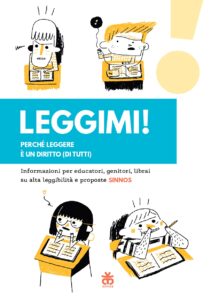The effort of reading, the conquest of reading
The autobiography of philosopher Jean Paul Sartre (“Les Mots”, The Words) consists, as it is well known, of only two chapters. The title of the final part is “Writing”, and describes how one of the greatest thinkers of the twentieth century conceived his work. Conversely, the title of the first chapter is “Reading”. It talks about getting to have something to say. These two excerpts could easily be applied, respectively, to the idea of listening and expressing oneself, as well.
In a world of exhibitionist and delirious graphomaniacs, in the vortex of worthless and resentful words that fuel the great social network machine of hatred and ignorance, in a society where, nearly always, succeeding is more important than listening to the others, there are some who believe that reading only the chapter “Writing” is enough. However, without its essential introduction, the final chapter appears to be just a grotesque mise-en-scene.
Being able to read and appreciate its taste is a necessary step. The strain of reading, the conquest of reading, the emotion of reading. In this difficult and uncertain time, we must hand to our youngsters this precious gift. We have the power to clear their way, remove the obstacles that in some cases might make this reading experience discouraging.
Thanks to scientific research, medical knowledge and experience of graphics and typography, reading could become an exciting journey.
DafDaf, the Jewish periodical for children, published monthly in this newsroom, has decided to be an example through the greatest gift, the friendship and generosity of Sinnos publisher.
Spontaneous, living pages to leaf through, for a reality that cannot only celebrate a glorious past, but that has also to write new chapters to the future and not to get lost.
It’s a further opportunity to rest for a moment, safe from the poison of digital dementia, side by side with those we want to see grow up free in a better world.
*Editor in chief, Union of Italian Jewish Communities
Translated by Alice Pugliese and revised by Gianluca Pace, students at the Advanced School for Interpreters and Translators of the University of Trieste, interns at the newspaper office of the Union of the Italian Jewish Communities.

